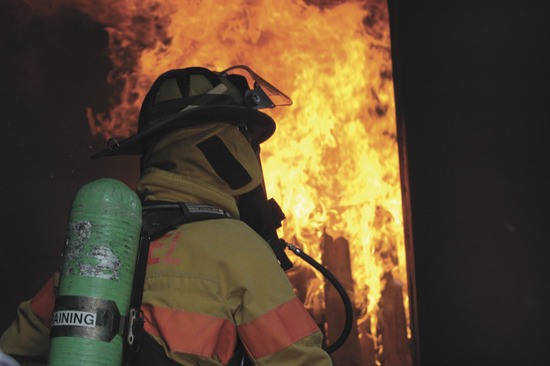Sixteen large wildfires and many smaller ones now span about 400,000 acres of Eastern Washington. State health officials warn that smoke from the fires raise health concerns for people in the 11 affected counties. This is especially true for children and those with health conditions.
The fires and evacuations have also forced the closure of several Women, Infant and Children (WIC) clinics and placed private water systems and septic systems on alert for power outages and fire damage.
People in areas affected by wildfire smoke are encouraged to monitor air quality using current information found on the Department of Ecology’s website. Breathing smoky air can cause shortness of breath, coughing and chest pain in healthy people. However, people with asthma or other lung diseases may experience more serious symptoms. Children and older adults are also at higher risk for health effects from air pollution, as are pregnant women and people with diabetes; these people should also limit their exposure to smoke.
Physical exertion and outdoor activities should be limited when smoke affects air quality. Respirator masks labeled N95 or N100 can also provide some protection for your lungs if you have to go outdoors. If you are advised to stay indoors, keep indoor air as clean as possible. Keep windows and doors closed. Run an air conditioner if you have one but keep the fresh-air intake closed and the unit set to re-circulate. If there is no air conditioning and it is too hot to keep windows and doors closed, consider seeking shelter elsewhere. Contact your local health department or emergency response local office for locations. Leave the area if instructed to do so by emergency personnel.
Contact your health care provider when you have specific health concerns and dial 911 for emergency assistance if symptoms are serious.
WIC clinics in Grand Coulee, Inchelium, Keller, Nespelem, Omak and Republic are currently closed. WIC clients are encouraged to call the State WIC Office at 1-800-841-1410 if they have further questions. They can also see up-to-date information about clinic closures on the Department of Health’s WIC webpage.
The agency is working with 17 water systems in the affected areas. At least one sustained damage, and a number of water systems lost power. So far, none of the water systems have issued health advisories. A new web page for water systems and private well users was posted today on the agency website.
The Department of Health website (www.doh.wa.gov) is your source for a healthy dose of information. Also, find us on Facebook and follow us on Twitter.


